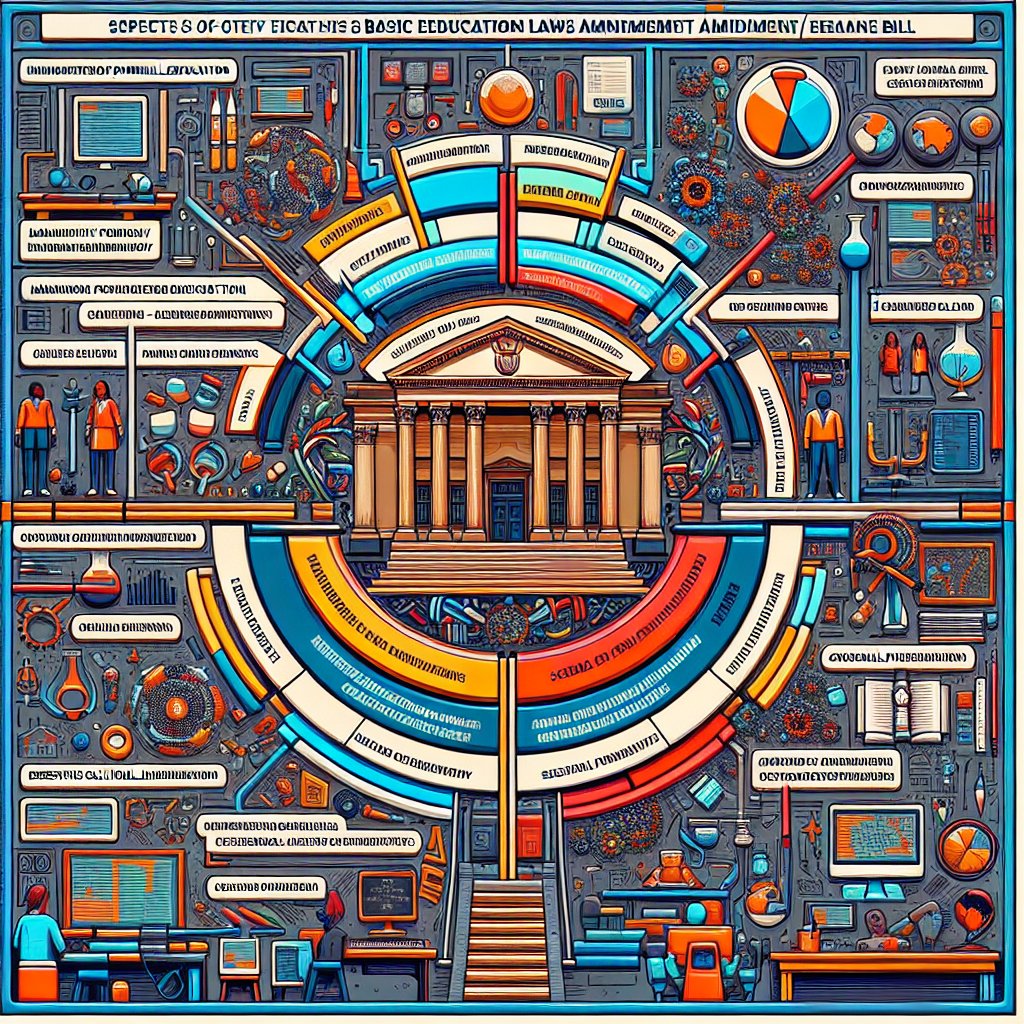Image created by AI
South Africa Debates Education Reforms as the Bela Bill Sparks Controversy
Amendments proposed in South Africa’s Basic Education Laws Amendment (Bela) Bill have stirred intense debate among South Africans, evoking a gamut of reactions from parents, educators, and school governing bodies. As the bill seeks to overhaul key education policies, its implications resonate across various spectra of society, from matters of early childhood development to the regulation of home education.
One of the most significant changes introduced by the bill is making Grade R compulsory, affecting nearly 8,000 schools and altering the landscape of early childhood education. This mandatory start to schooling has been met with resistance from some community members who argue that not every child may be developmentally ready for formal education at that age. They fear that premature school enrollment could potentially affect children negatively, both mentally and academically.
Moreover, the bill's stance on criminalizing parental negligence has raised eyebrows—parents could face imprisonment if they fail to ensure their children attend school. Adding to this, any disruption of school activities could result in up to a year's imprisonment. This punitive approach to enforce educational attendance has been criticized for potentially criminalizing poverty, given that socio-economic barriers often contribute to a child's absence from school.
The regulation of home education is another aspect that has come under scrutiny. The bill allows for site visits prior to the registration of home education and provides the Minister of Basic Education with broad regulatory powers over home schooling. Commentators on this topic note that it might overly bureaucratize what many consider to be a personal choice motivated by various reasons beyond the purview of governmental reach.
Questions have also arisen regarding the control of language policy within schools. The bill mandates that school governing bodies submit their language policies for approval—a move that could help cater to the linguistic diversity of the community, yet some fear it may diminish the autonomy of these bodies and invite politicization.
The bill's allowance for the sale and consumption of alcohol during adult-only private or religious events on school premises has notably drawn the ire of many who argue that schools should remain alcohol-free zones to maintain a conducive environment for learning and uphold a standard of moral behavior.
Taking into account cultural and religious diversity, the bill instructs school codes of conduct to respect and accommodate these beliefs. This includes provisions for students to seek exemptions, which could provide a framework for inclusivity within the educational system.
Reaffirming the ban on corporal punishment in schools, the Bela Bill reinforces South Africa's commitment to non-violent disciplinary measures. Advocacy group Section27 has thrown its support behind this particular amendment, commending the bill for defining and penalizing corporal punishment within educational settings.
Nevertheless, the same organization, Section27, has voiced concerns over the elimination of explicit prohibitions on alcohol on school premises. They, along with various stakeholders, are disputing and scrutinizing the mixture of progressive and contentious proposals within the 2023 Bela Bill.
The ongoing discourse surrounding the Bela Bill exemplifies the dynamic and often complex process of legislative reform, reflecting a society that is deeply invested in the future of its education system and the well-being of its children. As these discussions continue to unfold and as Section27 shares its written submissions with provincial legislatures, the outcomes of the Bela Bill remain a crucial subject of public interest.










